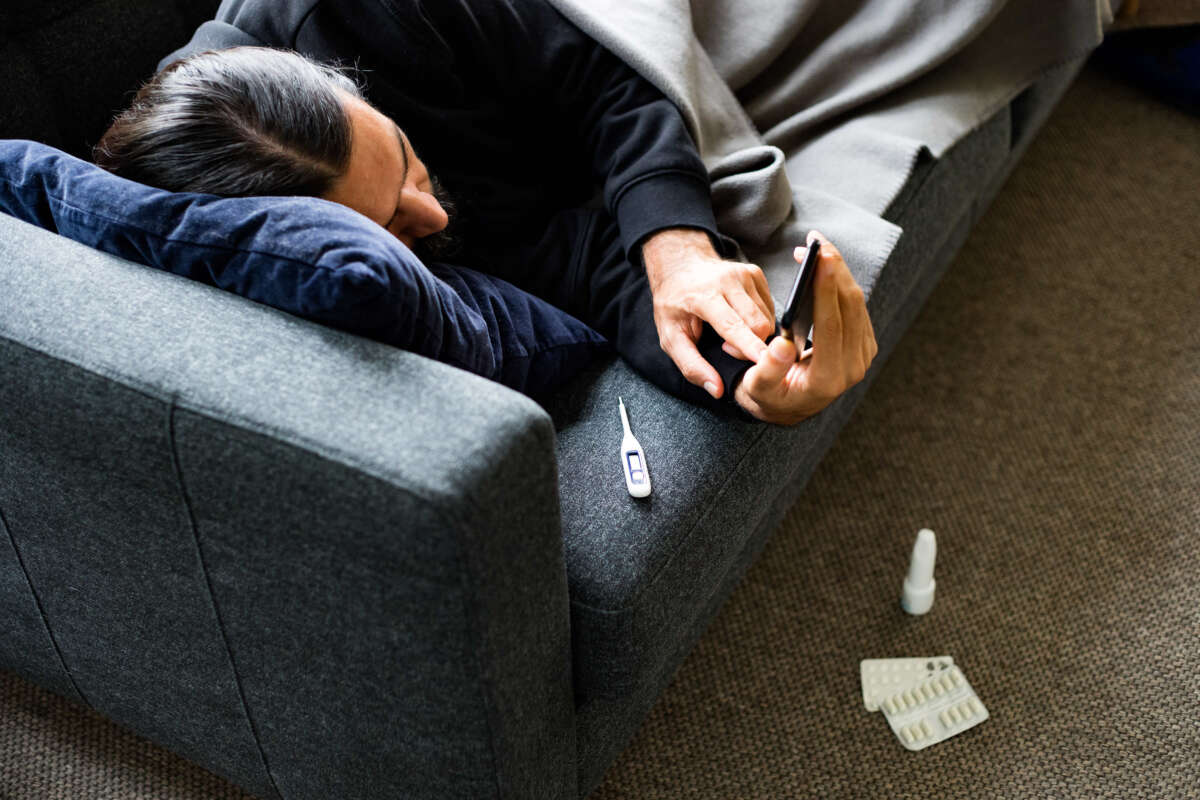Honest, paywall-free news is rare. Please support our boldly independent journalism with a donation of any size.
Voters in three states across the country passed ballot initiatives this election cycle that will install new paid sick leave rules for workers.
The states that passed the measures — Alaska, Missouri and Nebraska — are traditionally solid Republican states, indicating that progressive pro-worker policies are popular to voters regardless of geographical location.
As of Wednesday morning, around 56.5 percent of voters in Alaska supported the ballot measure. The new rule requires employers to allow workers to accrue up to 40 hours of paid sick leave. If an employer has more than 15 workers, employees can accrue up to 56 hours of paid sick leave. The Alaska measure also raises the minimum wage to $15 per hour starting in July 2027, and forbids punishing workers who don’t attend meetings held by their employers that promote a specific religion or political position.
The Missouri measure passed with the backing of 57.6 percent of voters. The successful ballot measure means that employers must provide one hour of paid sick leave for every 30 hours a person has worked. It also raises the minimum wage incrementally, up to $15 per hour starting in 2026.
The Nebraska measure provides workers seven days of paid sick leave per year if they are employed at a business that has 20 or more employees. For businesses with fewer than that many workers, employees receive five days of paid sick leave per year. The measure passed with 74 percent of voter support.
With those three states now allowing paid sick leave, 18 states plus Washington, D.C. now have such standards on the books. The U.S. is the only wealthy nation in the world without a federal standard for paid sick leave.
Prior to the vote, Richard von Glahn, a spokesperson for Missourians for Healthy Families, the organization that pushed for the ballot measure to be passed, said it was up to residents of the state to pass the law because state lawmakers wouldn’t do so.
“Our legislature just turns a blind eye to the bills that really are about people’s day-to-day struggles and what they need. That’s why we’ve had to turn to the ballot initiative process,” von Glahn told HuffPost.
Paid Sick Leave for Nebraskans, the organization that pushed for Nebraska’s ballot measure, lauded the outcome of Tuesday’s election.
“Nebraska voters have overwhelmingly passed Initiative 436 to give workers the ability to earn and use paid sick leave,” the group said in a statement. “This victory is another step forward in ensuring that every Nebraskan can meet their needs and take care of themselves and their families.”
Notably, the issue of paid sick leave was largely ignored by the presidential candidates during the campaign. While Vice President Kamala Harris did touch upon the issue of paid family leave at times, she didn’t make it a focus of her campaign and didn’t release a specific policy proposal — and she didn’t put forward a plan for paid sick leave at all.
Polling demonstrates that doing so likely would have helped her in the election, which she ultimately lost to former President Donald Trump. A poll from late 2023 conducted by Lake Research Partners, for example, found that 85 percent of swing state voters supported plans that would have addressed paid parental, family and medical leave. The poll also found that these policies would have increased voter turnout.
“[The poll makes] clear that these issues are not simply workplace perks, but they are core economic issues for voters,” said Jocelyn Frye, President of the National Partnership for Women & Families, speaking to Politico last year.
Press freedom is under attack
As Trump cracks down on political speech, independent media is increasingly necessary.
Truthout produces reporting you won’t see in the mainstream: journalism from the frontlines of global conflict, interviews with grassroots movement leaders, high-quality legal analysis and more.
Our work is possible thanks to reader support. Help Truthout catalyze change and social justice — make a tax-deductible monthly or one-time donation today.
